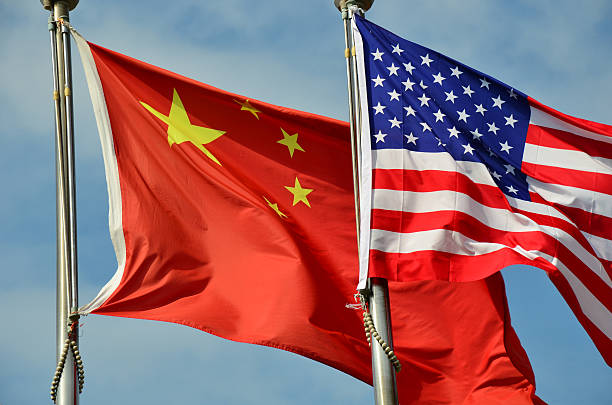China denies US think-tank report accusing its research ships of collecting information for military purposes
Posted on January 12th, 2024
PTI Beijing
The scientific activities of the Chinese side are totally in line with UNCLOS (UN Convention on Law of the Seas) and we have made contributions to the marine and scientific area: Chinese Foreign Ministry spokesperson Mao Ning

China on Friday denied an American think-tank report alleging that its vast fleet of scientific research” ships is collecting data from the oceans, including in the Indian Ocean, for military purposes, especially for submarine operations, saying that the Chinese vessels operations are in line with the UN Convention on Law of the Seas.
Separately, China’s official media accused the Centre for Strategic and International Studies (CSIS) of releasing the report coinciding with the current visit of Maldives President Mohamed Muizzu, who reportedly plans to permit the Chinese research ships after a recent ban by Sri Lanka following concerns expressed by India.ADVERTISEMENT
I do not know what is the basis of this report you mentioned and why (you) reached such a conclusion,” Chinese Foreign Ministry spokesperson Mao Ning told a media briefing when asked for her reaction.
The scientific activities of the Chinese side are totally in line with UNCLOS (UN Convention on Law of the Seas) and we have made contributions to the marine and scientific area,” she said.
An editorial in the state-run Global Times on the CSIS report said: The timing of this report is delicate, coinciding with the visit of Maldivian President Mohamed Muizzu to China, while another South Asian country, Sri Lanka, recently announced the suspension of foreign research vessels including those from China entering its waters under India’s pressure”.
Maldives and China signed 20 agreements during President Muizzu’s five-day visit during which he held talks with his Chinese counterpart Xi Jinping.
The CSIS report rightly comes at a time when some countries need to manufacture a “China threat” narrative in the Indian Ocean region and provides them with ammunition,” the Global Times said.
India has been flagging concerns over the repeated voyages of the huge Chinese research vessels to the Indian Ocean and docking in Sri Lanka’s Hambantota port, which China acquired on a 99-year lease as a debt swap.
Following this, Sri Lanka last month clamped a one-year ban on the research vessels, much to the chagrin of Beijing.
Recent reports from Sri Lankan media said Muizzu, regarded as a pro-China leader, plans to permit Chinese research vessels to dock in Maldives port.
The CSIS report said China is undertaking sweeping efforts to transform its navy into a formidable blue water” force capable of projecting power far beyond its shores.
As the People’s Liberation Army (PLA) ventures into less familiar waters like the Indian Ocean, Beijing has sought to deepen its understanding of the maritime operating environment by studying water conditions, currents, and the seafloor.
To survey the Earth’s oceans, China has developed the world’s largest fleet of civilian research vessels. While these ships support scientific and commercial objectives, they are also being used to advance Beijing’s strategic ambitions,” the report said.
The study reports satellite imagery to reveal how China is quietly using submarine diplomacy to deepen its influence along the Bay of Bengal.
The data collected by China’s civilian research fleet, which is outfitted with cutting-edge measuring and monitoring equipment, can help fill in major gaps in the PLA Navy’s undersea capabilities, the report said.
The underwater domain is critical to China’s interests in the Indian Ocean.
Chinese submarines could be called on to support a wide range of missions, ranging from intelligence collection to nuclear deterrence patrols, it said.
In a crisis, Chinese attack submarines operating there could complicate attempts by US or allied forces to interdict China’s supply lines or traverse the region to reach the Pacific.
China’s surveying operations have been heavily concentrated along its maritime periphery in the South China Sea and Western Pacific Ocean.
But it has also set its sights on the Indian Ocean, an emerging arena of competition between Beijing and New Delhi, it said.
Some ships have conducted survey operations within the exclusive economic zones (EEZs) of other countries without prior approval, which is prohibited under international law.
These activities have sparked diplomatic spats, including a 2019 confrontation between an Indian warship and a Chinese research vessel operating unauthorized in India’s EEZ, it said.
While Chinese surveys in the Indian Ocean contribute to scientific and commercial efforts, the data collected on research missions has clear military value – especially to submarine operations, it added.
China is using civilian vessels in key strategic regions including the Indian Ocean. Over the past four years, 13 of the ships were active in the region, the report said.
Except for the headline, this story has not been edited by The Telegraph Online staff and has been published from a syndicated feed.